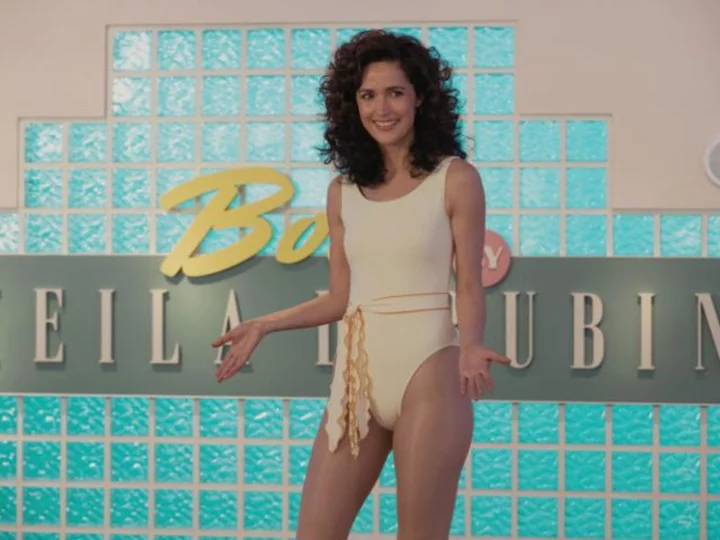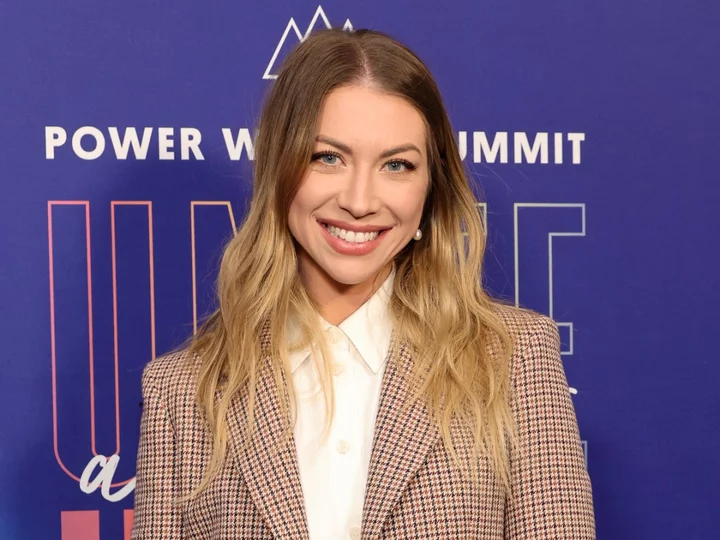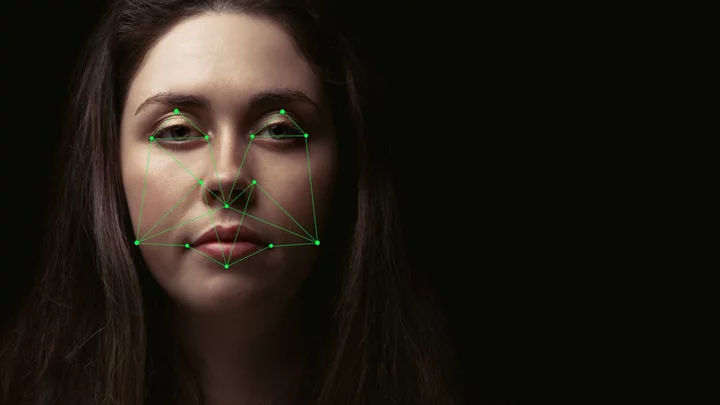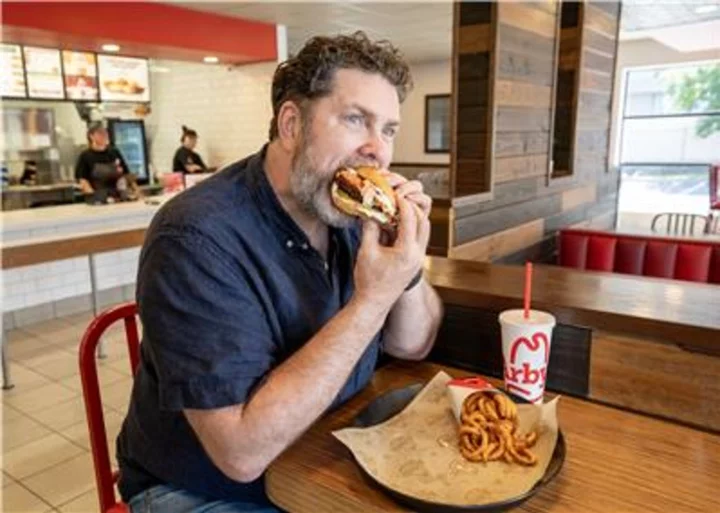AppleTV's 1980s-set drama series 'Physical' might be over, but creator Annie Weisman hopes the team's efforts to dismantle diet culture are just warming up.
"Even though we're done shooting, we're not done sharing it," Weisman told CNN in an interview, adding that she feels the show's themes surrounding society's historical obsession with size "continues to feel like it's in conversation with the culture."
The show's third and final season came to a close on Wednesday, ending Sheila Rubin's (Rose Byrne) arc by taking her from the San Diego-based housewife who is haunted by a dark inner monologue and struggling to get a grasp on her eating disorder, to a successful wellness entrepreneur on a journey of recovery.
"Maybe we'll get to make a movie," Weisman, who has been open about how her own experience with an eating disorder inspired parts of the series, teased. "We're now all talking about that."
In a recent chat with CNN, which took place in accordance with WGA rules while the union was on strike, Weisman spoke about bringing the show to a close.
This interview has been edited and condensed for clarity.
CNN: Was the way the series ended always how you imagined it, or did it evolve?
Annie Weisman: I knew that I wanted her to be on a recovery journey, and I knew I wanted to be authentic about the recovery journey. I owed it to her, and I owed it to an audience that stuck with her in the more harrowing moments, to really give her that growth and change -- and then also show the cost of it, and be realistic about it. And what we've come to is something that's more realistic and in the middle. That, to me, is what recovery really looks like and what I wanted her to get to.
I also felt really strongly from the beginning that I wanted her to achieve her ambitions professionally but pay a personal cost. Because again, that's true to me about the life of so many women in particular, is that there's always a cost and that cost is a certain kind of loneliness. She can't get everything and that's painful, and I think very true. So I wanted to celebrate what she gets and be honest about what she has to give up to get it.
CNN: "Physical" is set in the '80s but diet culture and the beauty standards of today can be really toxic. What do you hope viewers who maybe share Sheila's pain in their own lives take away from this series?
AW: I think one really important thing to me is to just kind of honor the women who've come before. I've got teenage daughters and I appreciate how much they need to understand how we got here, and to not take for granted opportunities and doors that are open to them that were forced open by some really pioneering women. And I think of Sheila as representative of some of those pioneering women who created ideas that we have today.
The other thing is, I look around today and as much as I appreciate that there's been so much progress in terms of body acceptance and awareness, just in terms of representation versus when I was my kid's age. When I see bigger bodies modeling in high fashion and swimsuits, I feel like that is such progress and that representation is so important. But I think just the sheer volume and the bombardment that my kids have of messaging about, like be better, do better -- it is so oppressive. So I do think the conversation the show is having is, how are things better? What's gotten better? But also, what's gotten harder, what did we gain and what did we give up? I think it's an ongoing conversation.
CNN: Is there anything that you did in your research for this show, outside of your own experience, that shocked you?
AW: I was shocked by how, in some research that we did in the writers' room, by just how threatening exercise was in its beginning as women started to embrace that as a business. That's something we look at a lot in this season because it's kind of hard to understand now. It was considered to be so radical and so suspicious to want to be physically fit as a regular person. And, as a woman, to want to get muscles was considered to be threatening to the structure of the family and to the fabric of America. That was a really interesting thing to explore because I think there are not many things that we can agree on anymore, but we can all pretty much agree across the board that exercise hasn't destroyed the family or America. But there was a pretty widespread belief for a long time that it would.
CNN: How much did Rose weigh in on the writing for Sheila?
AW: Rose is really special in that she isn't like any actress I've ever worked with in just her total bravery. From the beginning she was like, 'You better not pull any punches. I don't want you to cut any of this under pressure. Okay? I'm signing on for this stuff.' There's a scene in this season where (Sheila's) doing so well and then she has a setback with her bulimia around these diet cookies. And we were just kind of being authentic to how easy it is to get trapped again by diet culture of like, I'm doing so well but here comes this packaged cookie with the fantasy of you can eat all the cookies you want and not gain weight. No matter how much you educate yourself about the nonsense of that, we're all vulnerable to that. And then you see Sheila go down that road, and when she gets into this bathtub full of cookies naked I was like, 'Oh my God, are we going to do this?' (Rose) was like, 'ab-so-lutely we're doing this.' (laughs) She was all in. All in the bathtub of the cookies, she was taking selfies of herself -- she loved it. She just made me braver.
CNN: Sheila didn't end up in a romantic relationship, but the relationship that ended up lasting was her friendship with Greta. Can you talk about that dynamic and the importance of really showcasing positive female -- and adult -- friendships?
AW: As much as I planned this arc of recovery and progress and ambition for Sheila, I didn't plan how important that central friendship was. That's something that grew within the show. Like with any creative endeavor, it's that mix of what you plan and then what you're just flexible about and allow to happen and that was magic that just came out of that relationship between those two actors, Dierdre Friel and Rose Byrne. In a way, the love between the two of them was sort of the love story of the whole thing.
If you or someone you know has an eating disorder, Beat (in the UK) has phone and chat services available on its website and NEDA (in the US) has phone, text, and chat services available on its website.









